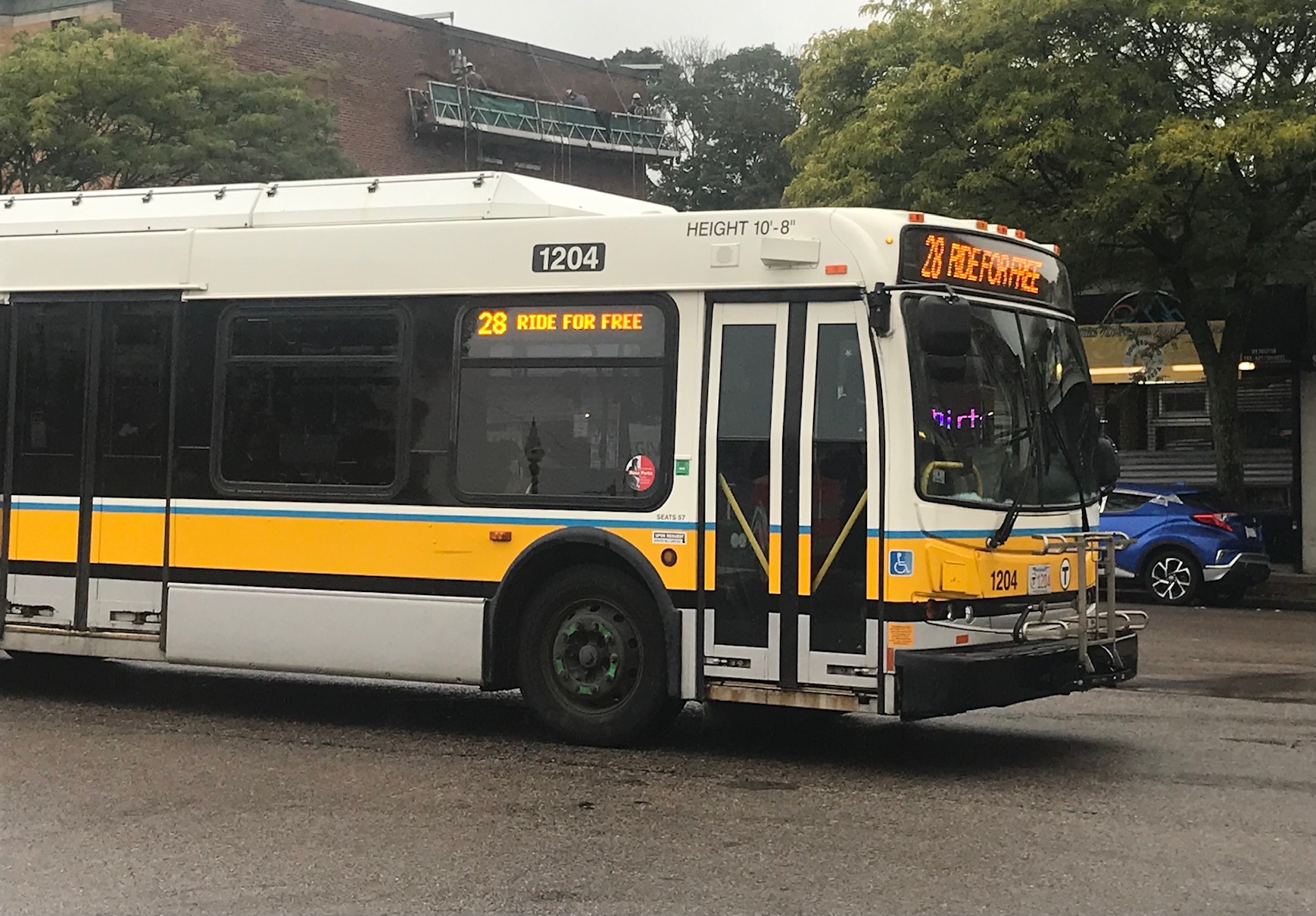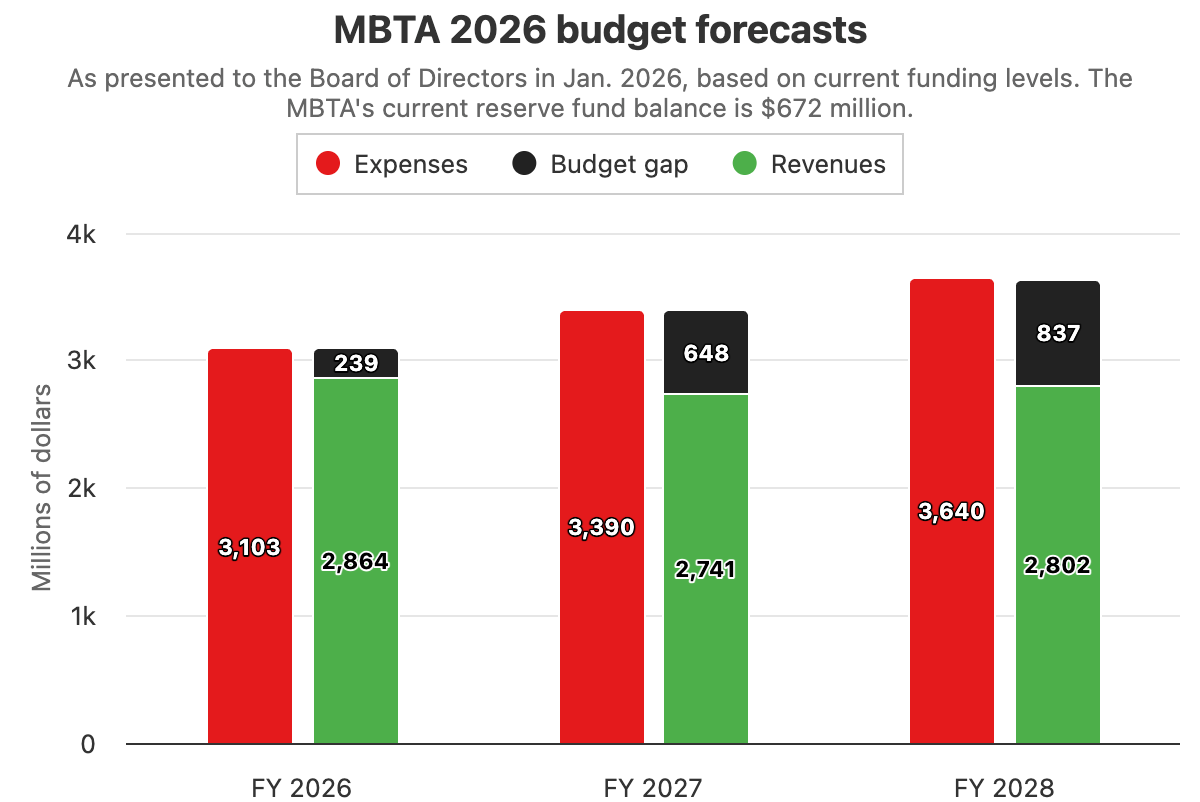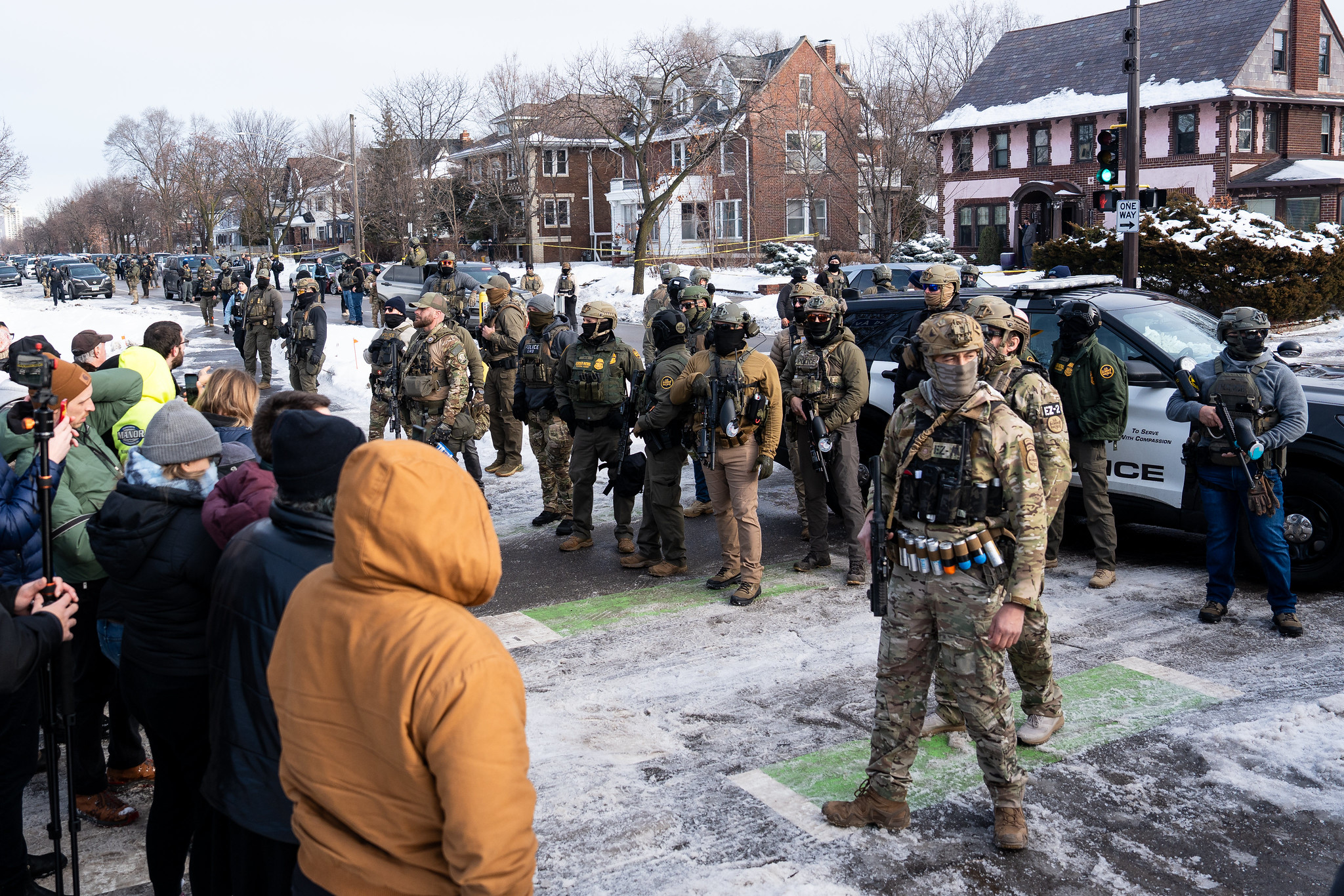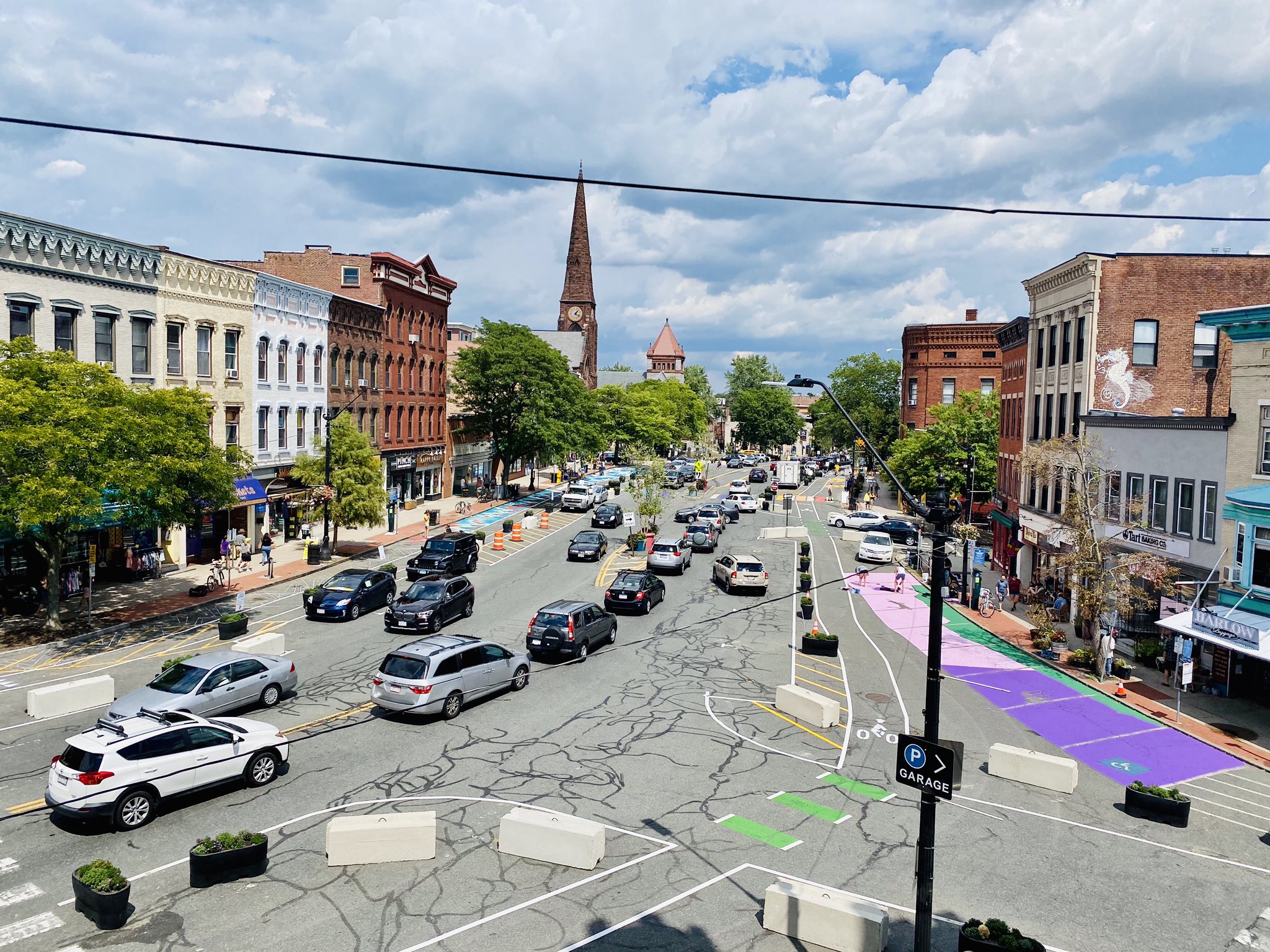In her first full day at work as the new Mayor of Boston, Mayor Michelle Wu followed through on her longstanding advocacy to reduce MBTA fares with a proposal to expand fare-free service on three of Boston's bus routes: the 23, 28, and the 29.
The program would last for two years, and expand on an existing 4-month pilot that has suspended fare collections on the 28, the state's busiest bus line, which runs on Warren Street and Blue Hill Avenue between the Ruggles Orange Line station and Mattapan Square.
While the bus system as a whole is still only carrying around 70 percent of their pre-pandemic passenger volumes, ridership on the fare-free 28 grew quickly in the weeks after fares were suspended in September.
The other two bus routes in Wu's proposal each share portions of their routes with the 28, through neighborhoods with high densities of transit-dependent households.
The 23, which ranks among the T's 10 busiest bus routes, runs from Ruggles to the Ashmont Red Line station via Warren Street.
The 29, which runs between the Jackson Square Orange Line stop and Mattapan Square, runs along Blue Hill Avenue and the new Columbus Avenue busway.
“I am excited to take this key step towards a brighter transit future. Building on the fare-free 28 bus pilot created by Mayor Janey, we will expand access to transit across our neighborhoods, connecting more people to their schools, places of worship, small businesses, and community centers––and easing congestion on our bus riders and drivers alike. With stronger ties between our communities, we’ll reshape the boundaries of what’s possible in our city,” said Mayor Michelle Wu in a press release announcing the proposal.
The expansion in fare-free bus service would rely on using $8 million from the city's federal pandemic relief funds to compensate the MTBA for lost fare revenue over the program's two-year period.
Wu filed that funding request with the Boston City Council on Wednesday, her first full day in office as the Mayor of Boston.
At Wednesday's regular City Council meeting, several councilors expressed a desire to suspend City Council rules and authorize the expenditure immediately.
At-large Councilor Michael Flaherty, who chairs a special City Council committee on pandemic recovery efforts, said that the proposal "is consistent with the same broad goals of the ARPA funds: supporting immediate economic stabilization for households and businesses, and addressing the systemic public health and economic challenges that have contributed to the unequal impact of the pandemic. This is one of the most popular issues that we have discussed, and a great opportunity for our council."
But Councilor Andrea Campbell, whose district includes portions of all three of the bus routes in Wu's proposal, objected to fast-tracking the matter.
"I fully support buses being free... I object, though, to the suspension of the rules and the passage of this today for two reasons. One, I do think that residents should have an opportunity to weigh in. Particularly those who are not getting their bus line made free... But the second piece is, during the course of conversations related to the campaign, it was made clear that our previous Mayor overpaid for the 28 (fare-free pilot)," claimed Campbell.
Councilor Flaherty asked Campbell to reconsider her objection in order to implement the program as soon as possible, but Campbell declined to do so, citing the Council's responsibility "as fiscal stewards" to examine the agreement between the city and the MBTA.
Campbell's objection postponed a formal vote on the proposal and referred the policy to a public hearing in the Council's Committee on Boston's Covid-19 Recovery. If a hearing can be scheduled before the Thanksgiving holiday, the City Council could bring the proposal back to a vote at its next scheduled meeting, on December 1.






